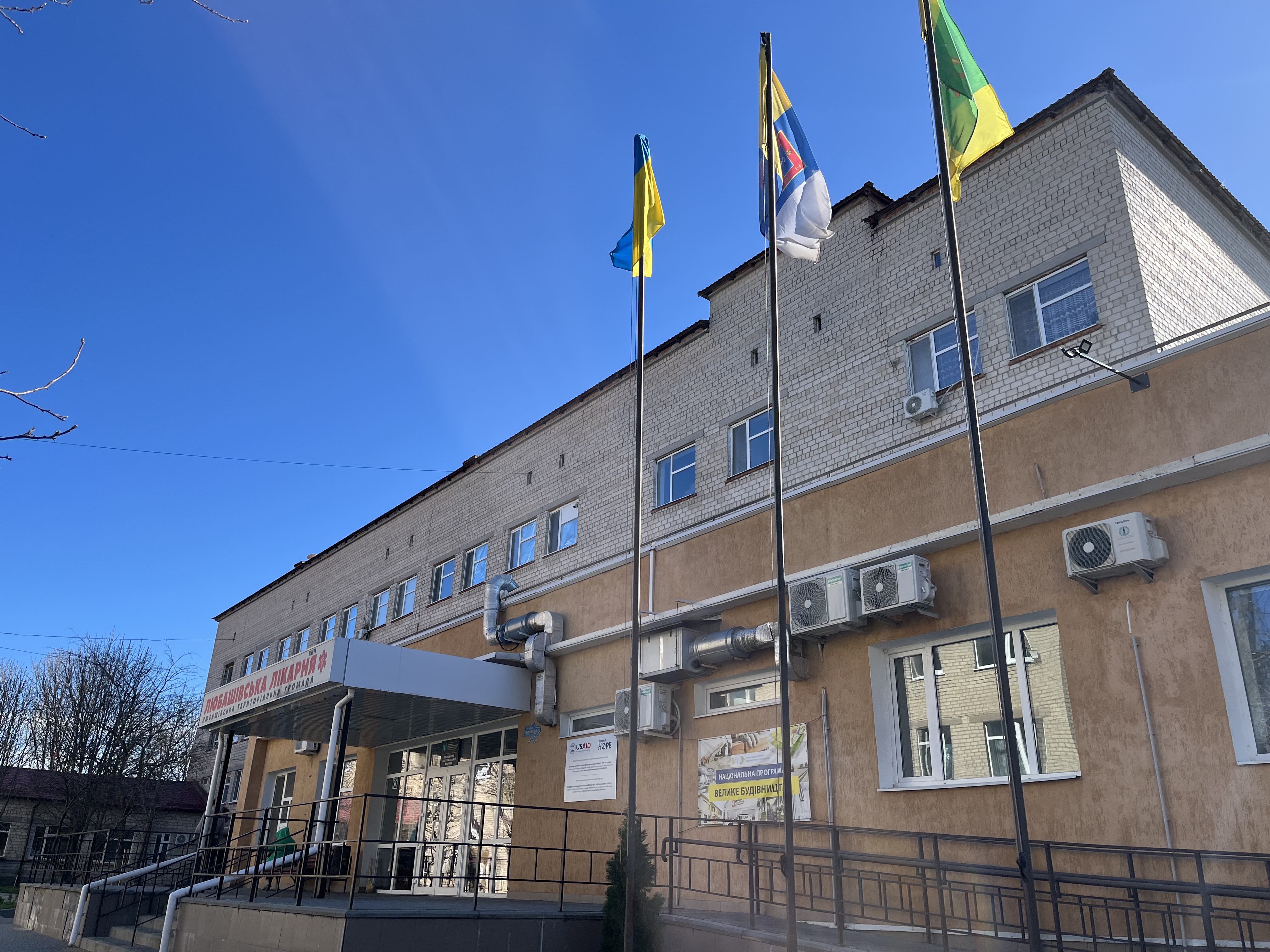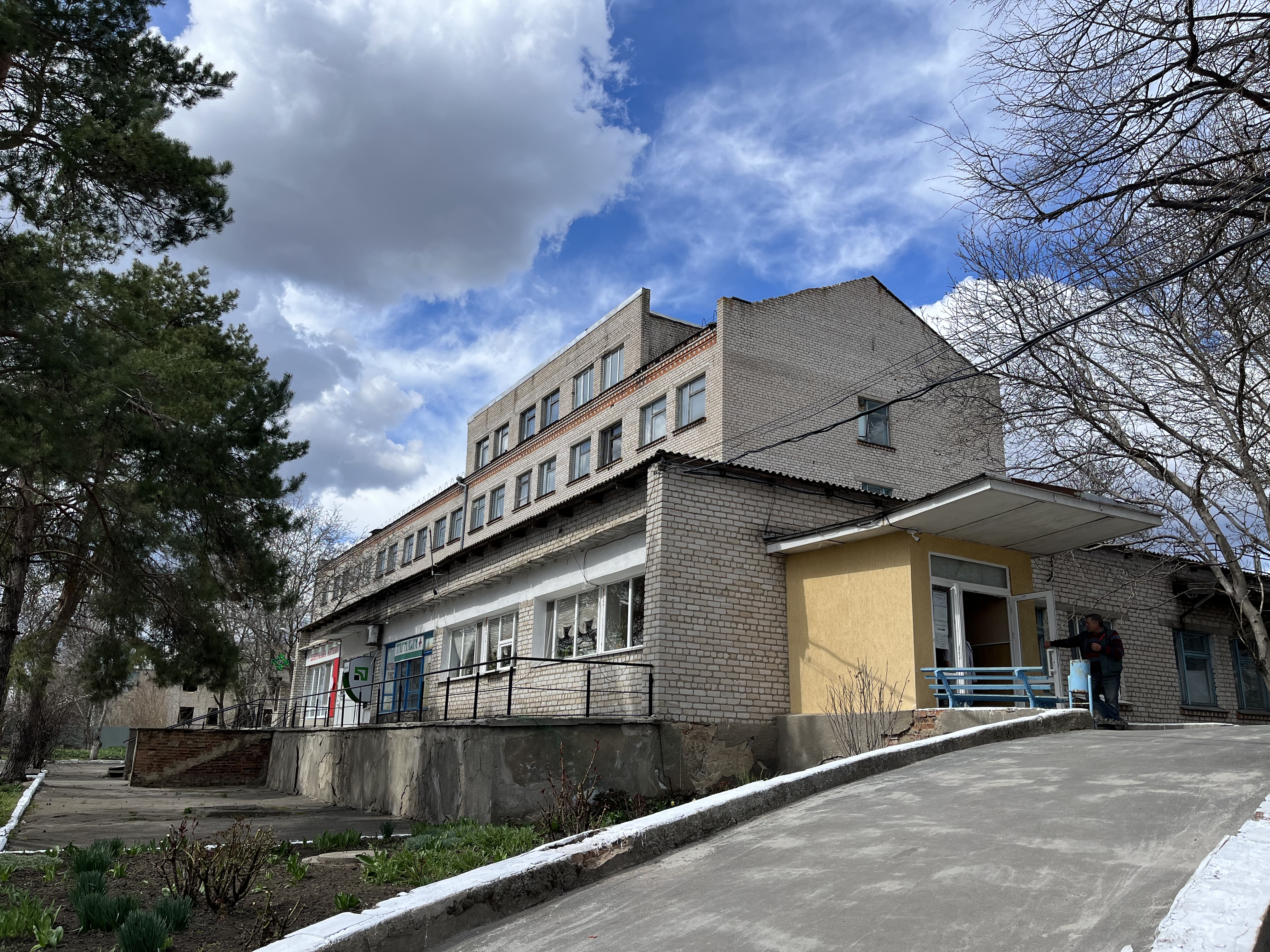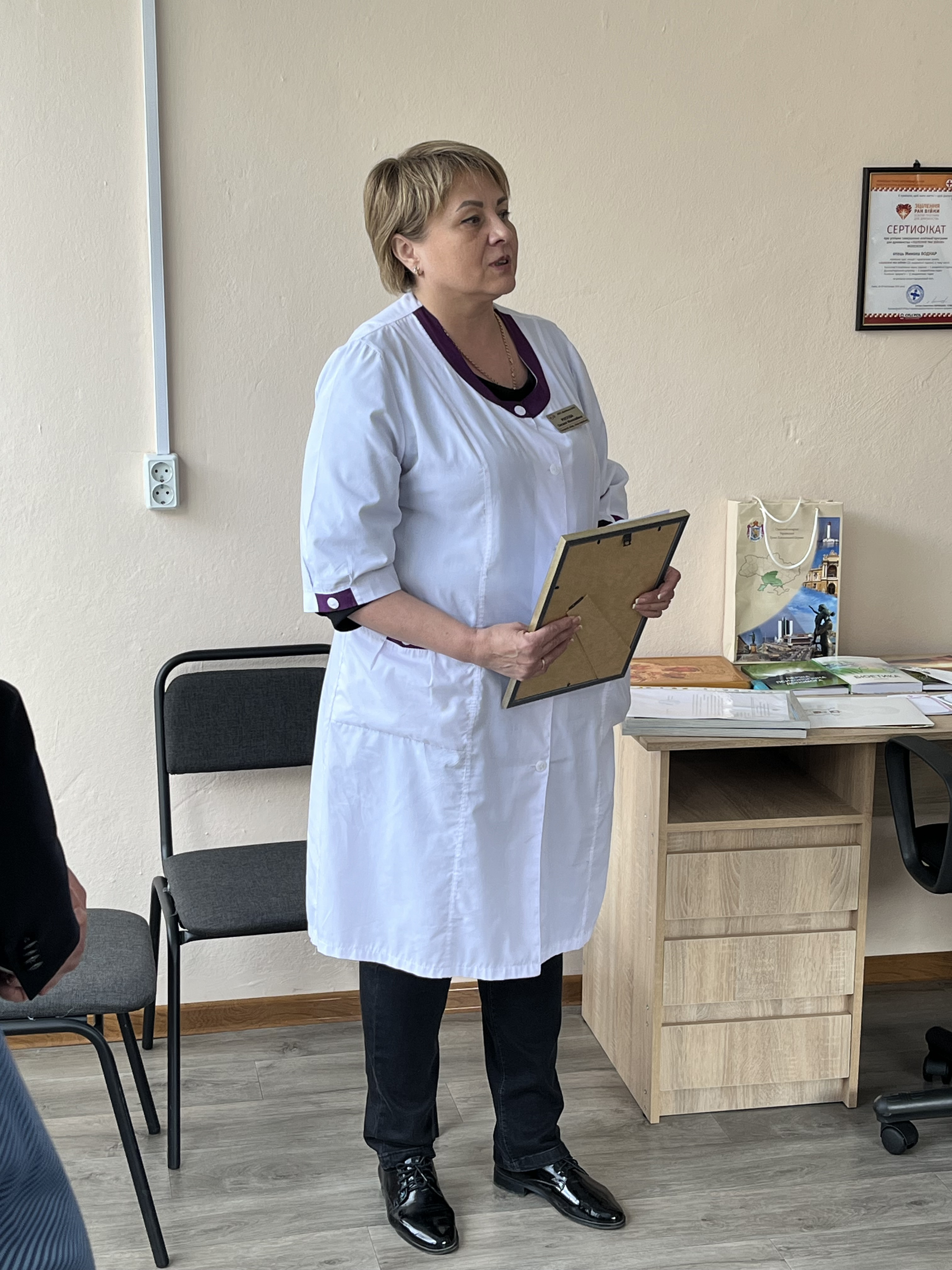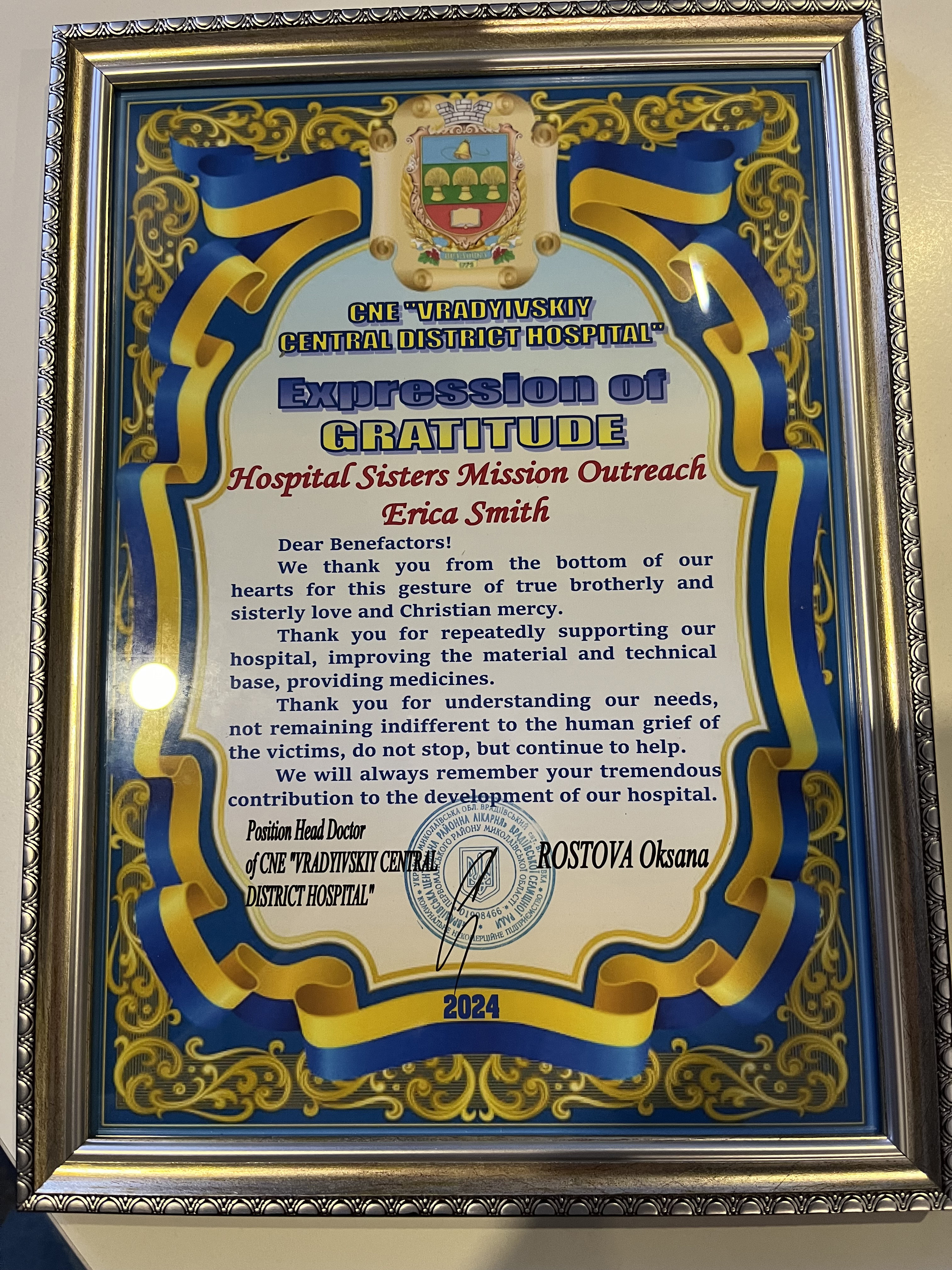Continuing to support and pray for Ukraine
April 09, 2024
Tuesday, April 9
Springfield, IL
The woman behind me was crying. I could hear it – actually, I could feel it. She was sobbing. Even though I didn't understand what the Archbishop was saying, I could tell by the tears and expressions on faces around the room, and the woman behind me crying, that he was talking about the war. When he finished talking the woman began speaking through her tears.
Our interpreter, Oksana, wasn't translating any of it but that was good. It wouldn't have been appropriate for the distraction during what felt like a very intimate gathering of many people. But then I noticed that Oksana herself was struggling with her own tears. After the woman finished speaking, her face in her hands, Oksana leaned over to me. "The point of what was said is that woman's son died in the war." And really, I didn't need to be told. My gut already knew. The expression of that kind of grief – a mother begging for an answer to why her son is dead – transcends language to communication that is felt in the soul.
This is one of many stories of unimaginable loss that I could tell you I heard or witnessed over the two weeks I spent in Ukraine. Why I choose to share this particular one is because I was in a room full of people who worked in a hospital that received equipment from Mission Outreach last July. The woman speaking – the mother grieving – works at that hospital. She, along with her colleagues, takes care of civilians and soldiers as they also grapple with how the war is affecting (and in some cases devastating) their own lives and families.
So for this final blog post about my experience in Ukraine, I want to focus on what moved me the most during my time there, and that is the resolve of health care and social service providers. In their everyday lives everywhere in the world, those who devote their lives to the care of others possess an extraordinary strength – and in Ukraine, they must be especially resilient to carry out their vocation as nurses, doctors, social workers, psychologists and all the roles that support direct patient care.
The two hospitals we visited, CNE Vradyivskiy Central District Hospital and Lyubashivka Multidisciplinary Hospital, are both in very rural areas and have not received a lot of aid even though they have seen an increase in patients since the beginning of the war. The Knights of Columbus in Ukraine are helping to support these hospitals, and when Christian and Monsignor Vitillo first asked the Archbishop of Kyiv (and Papal Nuncio) how the Vatican-mandated Catholic Response group could best serve in Ukraine, the Archbishop directed them toward the rural areas to help fill those gaps. Through the Knights and International Catholic Migration Commission (ICMC), along with the Catholic Health Association, is how Mission Outreach became involved in this effort.
While the rural hospitals do treat soldiers injured in battle, much of the increase in patients is from the internal displacement of people who have fled from the eastern part of the country and settled in the west. Therefore, there is a great need for resources for surgical and trauma care, as well as general medical and other specialty services.
Even though the setting is pastoral (looking at the fields and grain bins it felt very much like central Illinois), the war still looms large as in everywhere in Ukraine. When we were presented certificates of appreciation for our contribution, we were all given a bag with a framed icon of Christ and two small boxes filled with metal pieces. In those boxes were pieces of shrapnel that had been removed from the bodies of soldiers taken to that hospital for war injuries. The "gift" of the shrapnel was first to demonstrate the need for health care services and also to show us what war does to the human body.
The medical director of that hospital fought 10 years ago in Crimea when Russia first invaded Ukraine. In the administrative board room, the flag of Ukraine was proudly displayed. The administrator ducked into his office and came out holding a gun – it was his from his days fighting on the front lines. Even as the conversation continued, he held the gun at his side. As the day progressed, I could see both his exhaustion and dedication as they competed for his attention. When we talked about the donation of equipment from Mission Outreach and the interpreter translated me saying that we have a biomedical engineer on staff who is available to meet with international partners to talk about equipment needs, the medical director's head snapped in my direction, and he said the only English word I heard him say all day: "When?"
He, and the medical director of the other hospital we visited, shared their satisfaction with the items they had received from Mission Outreach. Through the translator, they told me that the beds we sent were of higher quality than they could buy new – in fact, given the choice, they prefer the Mission Outreach beds over new models. I was also told that the surgeons appreciated the instruments we had sent, specifically the scalpels, and said they were far superior for use over anything they had.
As we are shipping out a second container to Ukraine within weeks in partnership with the Knights of Columbus and ICMC, I felt good knowing that the work our team and volunteers have done is not only helpful, but also of superior quality and valued by our colleagues in those hospitals.
I would like to end by returning to the group I spoke of in my first blog from Ukraine – the team of mental health professionals who are providing counseling and clinical mental health services to seminarians, children and adults. When we had supper with them on our first night in Lviv, I was so impressed by their youthful enthusiasm and intense sense of commitment to serving their fellow citizens who were suffering. We visited them again on our last day in Ukraine when we were back in Lviv.
With us was another small group of enthusiastic Americans who were firing questions at one of the therapists – she kept up, in English, for quite a while. Then after several minutes she sighed and with a long pause said, "You must understand that the people providing counseling are also living in a war. We must find ways to take care of ourselves too and deal with what we are going through. And this is sometimes very hard."
What an understatement – and a perfect summary of all I saw and heard while in Ukraine, and in a sense, also reflects everywhere in the world where a person is giving care to another. People who work in clinics, hospitals, shelters, homes or anywhere those who need help go, are human beings. Those caregivers are not immune to heartbreak, anxiety, worry or exhaustion. They just somehow, day in and day out, summon the strength to put themselves aside to meet the physical, mental, emotional and spiritual needs of others.
It's become cliche to describe health care workers as "heroes." So I won't do that, because the word itself isn't enough to describe the courage I saw in the eyes and faces of the Ukrainian nurses, doctors and workers in hospitals and clinics.
Instead, here is what I want to leave you with as I close my story about my experience in Ukraine – as we were leaving the hospital where the grieving mother had cried with her colleagues, Oksana told me what else the woman had said. It was, "Please pray for me and pray for my son. And pray for peace to return to Ukraine."
And finally, I would like to thank Rachelle Barina, Amanda Mack, Vicki Macklin, Cayti Costello, Kelly Barbeau, and Joe Hardwick at HSHS/Mission Outreach for making this blog possible. Thanks to you for reading this and going along with me the past two weeks! If you know of a group that may be interested in hearing a presentation about Mission Outreach (our work in Ukraine and throughout the world), send me an email at [email protected]. I would love to hear from you.





